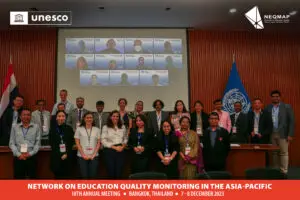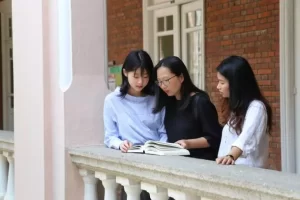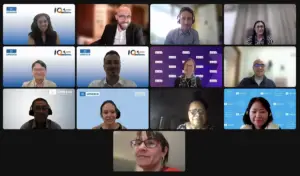
The UNESCO’s Network on Education Quality Monitoring in the Asia-Pacific (NEQMAP), in partnership with the Australian Council for Educational Research (ACER) through the Global Education Monitoring (GEM) Centre, produces series of ‘topical case studies’ to strengthen the knowledge base in the quality of education through research and analysis related to learning assessments.
On 21 October 2021, NEQMAP in collaboration with GEM-ACER, the Annual Status of Education Report (ASER) Civil Society Organisations in India, Pakistan, Nepal, Bangladesh, and the People’s Action for Learning (PAL) Network hosted a regional report launch webinar on the fourth series of the NEQMAP topical case studies on Citizen-led Assessments (CLA): A Model for Evidence-based Advocacy and Action to Improve Learning with example of the CLA applications in South Asian countries.
Attended by 64 participants from over 12 countries across the Asia-Pacific region, the webinar was organized in three sessions via Zoom platform. Following the opening remarks delivered by Ms Margarete Sachs-Israel, Chief of Section for Inclusive Quality Education (IQE), UNESCO Asia-Pacific Regional Bureau for Education in Bangkok who emphasized the issues of COVID-19 impact on learning losses, quality education, equity, school reopening, as well as the success of the SDG4 target that is considered at risk, Dr Faryal Khan, Head of NEQMAP Secretariat/ Team Lead of the Quality of Education team under IQE Section, UNESCO Bangkok, then presented a brief overview of the NEQMAP-ACER topical case study from 2015 to demonstrate efforts of countries in the Asia-Pacific region in using learning assessment data to inform evidenced for policy and practice.
Dr Baela Raza Jamil, CEO, Idara-e-Taleem-o-Aagahi (ITA), Centre for Education and Consciousness presented an overview of the CLA model and moderated the second session of the webinar to highlight key findings and concrete examples of the CLA applications in monitoring and improving learning through civil action. Dr Suman Bhattacharjea, Director of Research, ASER Centre, India shared her insights that the CLA implementation in India has engaged and involved with the government official groups alongside the citizen groups to improve children’s learning. Dr Suman also emphasized the results of the CLA assessment that confirmed huge learning losses and that it is important to put more attention to the foundational skills and teaching at the right level for children.
Ms Sehar Saeed, Deputy Director Research, Idara-e-Taleemo-Aagahi (ITA), ASER Pakistan continued to share how ASER Pakistan implemented the CLA to ensure equity and gender perspectives as it has collected data from both rural and urban areas. The CLA implementation in Pakistan also created partnership with the assessment body of the government. While ASER Nepal, Mr Rajib Timalsina, Director of ASER Nepal and Assistant Professor at Tribhuvan University Kathmandu Nepal highlighted how CLA in Nepal has been instrumental in mobilising both the local government and youths in the process. The CLA is not only providing opportunities to empower both local government officials and youths to upskill, but also helps address prompt needs through and from their own communities.
The final example of CLA application in Bangladesh presented by Mr Syeed Ahamed, Public Policy Analyst and Founder CEO Institute of Informatics and Development (IID). Mr Syeed shared insights from advocacy perspective that the CLA results play a potential key role in influencing policy makers to better understand the current issue of learning losses. After all country case studies presented, Dr Ursula Schwantner, the research fellow at the Centre for Global Education Monitoring (GEM), Australian Council for Educational Research (ACER) had provided a commentary and shared views as co-editor of the case study that CLAs engage policy makers, planners, teachers, parents, and community members in discussions about learning and help foster understanding of the importance of ensuring quality education.
Finally, Dr Ayesha Razzaque, the technical advisor of Ministry of Federal Education and Professional Training of Pakistan had exchanged perspective from the decision-making level that the CLA model has potential in supporting the education strategy and addressing learning loss. “The key thing is the next steps”, according to Dr Ayesha. Dr Ayesha emphasizes the importance of information and advocacy work that is needed to inform and engage community and parents as it is their interests and they would like to learn how their children are doing.
Dr Faryal Khan, Head of NEQMAP Secretariat then left a final remark of the webinar as we are all facing the same critical challenges of learning, what are the roles of the Citizen-led Assessments (CLA) to support countries’ monitoring systems to ensure that our learner needs are well addressed. Regional platforms such as our CLA launch webinar today serves to link between research findings and evidences to policy and practice enhancement. NEQMAP as well as our key education partners in the region will continue to serve and showcase good practices and country examples in monitoring the quality of education for all.
For more information about the NEQMAP-ACER topical case study 4th on Citizen-led Assessments: A Model for Evidence-based Advocacy and Action to Improve Learning, please click the link: here.
Webinar Materials (clickable):
- Concept note
- Programme Agenda
- Powerpoint Presentations
- Overview of the NEQMAP-ACER topical case study from series 1-4 by NEQMAP Secretariat
- CLA applications from India, Pakistan, Nepal and Bangladesh by South Asia ASER/PAL Network:
3.1 ASER India: Dr Suman Bhattacharjea, Director of Research, ASER Centre
3.2 ASER Pakistan: Ms Sehar Saeed, Deputy Director Research, Idara-e-Taleemo-Aagahi (ITA), ASER Pakistan
3.3 ASER Nepal: Mr Rajib Timalsina, Tribhuvan University & ASER Nepal
3.4 ASER Bangladesh: Mr Syeed Ahamed, Public Policy Analyst and Founder, CEO Institute of Informatics and Development (IID)
3.5 PAL Network: Mr Ranajit Bhattacharyya, General Manager of PAL Network
4. Webinar Recording:
For more information, please contact:
NEQMAP Secretariat, UNESCO Bangkok: neqmap@unesco.org





